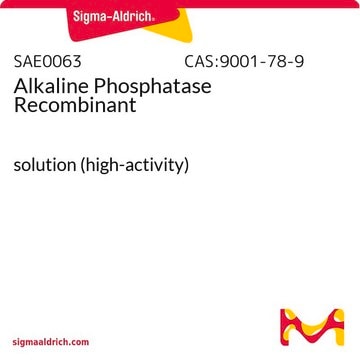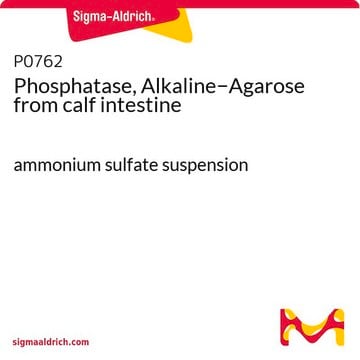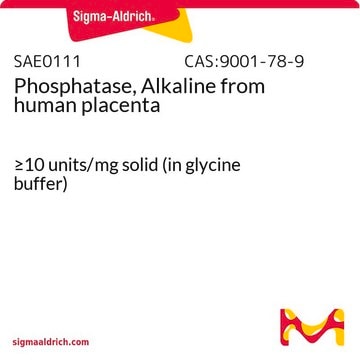03359123001
Roche
Alkaline Phosphatase recombinant, highly active
EIA Grade, from Pichia Pastoris
About This Item
Produits recommandés
Niveau de qualité
Pureté
≥95% (HPLC)
Forme
buffered aqueous solution (ready-to-use, 20 mg/ml)
Activité spécifique
≥7000 units/mg protein (At 37 °C with pNPP and DEA as the substrates)
Conditionnement
pkg of 10 mg (500 μl)
Fabricant/nom de marque
Roche
Concentration
20 mg/mL (ready-to-use)
pH optimal
8.0(Stability)
9.8(Activity)
Conditions d'expédition
wet ice
Température de stockage
2-8°C
Description générale
The recombinant enzyme guarantees superior lot-to-lot consistency and completely eliminates the risk of BSE.
Spécificité
Application
Actions biochimiques/physiologiques
Caractéristiques
Forme physique
Notes préparatoires
Autres remarques
Code de la classe de stockage
12 - Non Combustible Liquids
Classe de danger pour l'eau (WGK)
WGK 1
Point d'éclair (°F)
No data available
Point d'éclair (°C)
No data available
Certificats d'analyse (COA)
Recherchez un Certificats d'analyse (COA) en saisissant le numéro de lot du produit. Les numéros de lot figurent sur l'étiquette du produit après les mots "Lot" ou "Batch".
Déjà en possession de ce produit ?
Retrouvez la documentation relative aux produits que vous avez récemment achetés dans la Bibliothèque de documents.
Les clients ont également consulté
Notre équipe de scientifiques dispose d'une expérience dans tous les secteurs de la recherche, notamment en sciences de la vie, science des matériaux, synthèse chimique, chromatographie, analyse et dans de nombreux autres domaines..
Contacter notre Service technique







